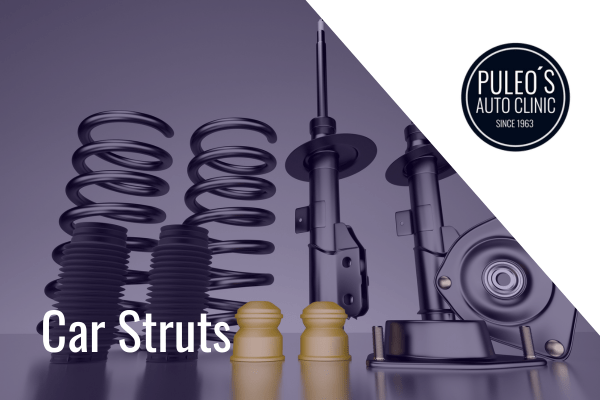How often do struts need to be replaced?
Struts play a crucial role in your car's suspension system. They're not just about comfort - they're essential for safe handling on the road. Therefore there's no one-size-fits-all rule for when to replace them. The standard set by the industry when it comes to car struts is to replace them every 50,000 to 100,000 miles, depending on the condition and how the vehicle is driven. Various factors come into play, determining how often do struts need to be replaced.
1. Driving Habits
If you're the type who's always stomping on the gas or slamming on the brakes, you're giving your suspension a real workout. That aggressive style is tough on your struts. They're taking a hit every time you make those sudden moves. Over time, all that extra stress adds up. Your struts start wearing out faster than they should.
2. Road Conditions
The bumpy, pothole-riddled streets do a number on your automotive shocks. Every jolt and bump puts extra strain on your struts. It's not a one-off thing either. This constant exertion wears them down faster than you might expect. Thus the parts inside your struts get knocked around frequently, breaking down bit by bit.
3. Vehicle Type
Heavier vehicles often come with tougher struts. They're built to handle more stress and might stick around longer. On the flip side, some cars are built for speed and agility. They usually have more complex suspension systems. And although it's great for performance, this setup can mean more wear and tear on the struts.
4. Towing or Hauling Heavy Loads
When you're hauling heavy stuff or towing, it puts a real strain on your struts. They're working overtime, dealing with all that extra weight. Thus for folks who regularly push their vehicle's limits with heavy loads, strut maintenance becomes even more crucial. Your struts need more frequent check-ups and replacements.
As your automotive shocks are failing, your whole driving experience changes, and not for the better. Your car won't respond the way it should. Stopping also becomes more challenging, and handling suffers. This is why regular check-ups are so crucial. A good mechanic can spot these issues before they become dangerous. They've got the know-how to recommend how often do struts need to be replaced.
Want to know more about how often do struts need to be replaced? Contact our ASE Certified Technicians at Puleo’s Auto Clinic for more information about automotive shocks and to schedule an appointment. Our auto shop serves vehicle owners in Washington, NJ, and the surrounding areas.
Wondering how often do struts need to be replaced? Maintaining the condition of automotive shocks and struts is important for safe driving.
Struts play a crucial role in your car's suspension system. They're not just about comfort - they're essential for safe handling on the road. Therefore there's no one-size-fits-all rule for when to replace them. The standard set by the industry when it comes to car struts is to replace them every 50,000 to 100,000 miles, depending on the condition and how the vehicle is driven. Various factors come into play, determining how often do struts need to be replaced.
1. Driving Habits
If you're the type who's always stomping on the gas or slamming on the brakes, you're giving your suspension a real workout. That aggressive style is tough on your struts. They're taking a hit every time you make those sudden moves. Over time, all that extra stress adds up. Your struts start wearing out faster than they should.
2. Road Conditions
The bumpy, pothole-riddled streets do a number on your automotive shocks. Every jolt and bump puts extra strain on your struts. It's not a one-off thing either. This constant exertion wears them down faster than you might expect. Thus the parts inside your struts get knocked around frequently, breaking down bit by bit.
3. Vehicle Type
Heavier vehicles often come with tougher struts. They're built to handle more stress and might stick around longer. On the flip side, some cars are built for speed and agility. They usually have more complex suspension systems. And although it's great for performance, this setup can mean more wear and tear on the struts.
4. Towing or Hauling Heavy Loads
When you're hauling heavy stuff or towing, it puts a real strain on your struts. They're working overtime, dealing with all that extra weight. Thus for folks who regularly push their vehicle's limits with heavy loads, strut maintenance becomes even more crucial. Your struts need more frequent check-ups and replacements.
As your automotive shocks are failing, your whole driving experience changes, and not for the better. Your car won't respond the way it should. Stopping also becomes more challenging, and handling suffers. This is why regular check-ups are so crucial. A good mechanic can spot these issues before they become dangerous. They've got the know-how to recommend how often do struts need to be replaced.
Want to know more about how often do struts need to be replaced? Contact our ASE Certified Technicians at Puleo’s Auto Clinic for more information about automotive shocks and to schedule an appointment. Our auto shop serves vehicle owners in Washington, NJ, and the surrounding areas.



